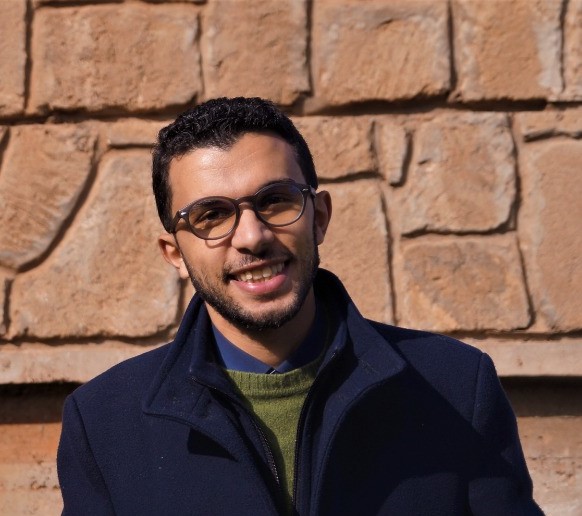من المعلوم أن الأزمات -أيًّا كان نوعُها وطبيعتها ومدى تأثيرها- تعيد ترتيب المشهد دائما. فبفضلها، قد يصبح تفصيل صغير جدًّا لم يكن في السابق ذا بال وعناية تامة، يحتلّ أعلى هرم الأولويات وضمن لائحة ألَحِّ الضرورات، بينما غالبا ما تشكّل الأزمات وطريقة إدارتها قطائعَ ترسم حدودًا فاصلة بين مرحلتين: ما قبل وما بعد؛ سواء في حياة الأفراد أو في حياة الجماعات والدول.
القاعدة المشار إليها أعلاه تكاد تنسحب على مُجمل أنواع النشاط البشري ومجالاته على اختلافها، والإعلام ليس بمعزل عنها، بل هو من أكثر المجالات التي شهدت -ولا تزال- تطورًا متسارعًا بفضل وسائل التكنولوجيا والتواصل الجديدة التي فرضت على غرف التحرير والأخبار أنماطا غير معهودة في مضامين وأشكال الإنتاج الإعلامي، فضلا عن طرائق التفاعل مع الجمهور المتلقي.
باعتبارها أزمة صحية وبائية اجتاحت أقطار العالم، لن تمرّ جائحة "كوفيد 19" مرور الضيف العابر على وسائل الإعلام العالمية وغرف الأخبار، كما هو الحال بالنسبة للمتلقي (أو المستهلِك للمنتَج الإعلامي) ذاتِه، إذ بدأت بوادر التغيير وإرهاصات التحول تظهر بارزة من الآن، تاركة بصماتها واضحة على العلاقة بين الجمهور ووسائل الإعلام من جهة، وعلى السلوك الإعلامي/التواصلي لهذه الأخيرة من جهة ثانية.
كورونا تُصالح الجمهور مع الإعلام التقليدي
فضلا عن الحسنات العديدة التي حملها معه فيروس كورونا إلى العالم، ولعل أهمَّها يكمن في تسريع وتيرة رقمنة مختلف مناحي الحياة والخدمات الاجتماعية، فقد أعاد "ثقةً" اعتُبِرتْ إلى زمن قريب "مفقودةً" أو "هشّة" بين وسائل الإعلام الجماهيرية التقليدية وفئات واسعة من مستهلكي الأخبار عبر العالم، لا سيما الشباب أقل من 35 عاما.
إنه معطى واقعي يجد تفسيره التجريبي فيما توصّل إليه "معهد رويترز لدراسة الصحافة" التابع لجامعة أكسفورد البريطانية من نتائج وخلاصات في تقريره السنوي لعام 2020 حول الأخبار الرقمية، أكدت تحقيقَ القنوات التلفزيونية (في 6 دول من مختلف القارات، شملها استبيان أجري مطلع أبريل/نيسان 2020) "قفزةً -يمكن اعتبارها كبيرة- في نسب اعتمادها كمصدر للأخبار، مقارنة بشهور قليلة قبلها".
وهنا، وجَبَ استحضار سياق صدور تقرير هذا العام وسط "جائحة غير مسبوقة في العصر الحديث"، فاقها خطورةً -حسب التقرير ذاته- حجمُ انفتاح الجمهور على "نظريات المؤامرة والتضليل، مما يؤكد الحاجة -أكثرَ من أي وقت مضى- إلى صحافة دقيقة وذات موثوقية".
ممّا يشدّ الانتباه أيضا ضمن خلاصات التقرير المذكور، هو حجم التغير الحاصل ضمن سلوك استهلاك الأخبار ومتابعتها من خلال منابر ومنصات رقمية مختلفة، إذ يصف تقرير معهد رويترز -الصادر في يونيو/حزيران 2020- هذا السلوك خلال أزمة كورونا، بأنه "الرقمي الجديد الذي سيكون له ما بعده من تأثيرات بعيدة المدى".
كما برزت خلال ظرفية الجائحة ووَطأة إجراءات الإغلاق الكلي أو الجزئي، أهمية وسائل الإعلام الجماهيرية -التي تُنعت عادة "بالتقليدية"- في دول نامية أو تلك التي لا تتوفر على تقاليد إعلامية عريقة، مثل المغرب؛ إذ أظهرت معطياتُ البحث الذي قامت به "المندوبية السامية للتخطيط" (مؤسسة إحصائية مغربية رسمية) خلال أبريل/نيسان 2020 حول "تأثير فيروس كورونا على الوضع الاقتصادي والاجتماعي والنفسي للأسر المغربية"، أن أرباب هذه الأخيرة يستخدمون "لمتابعة الأخبار عـن تطور جائحة كوفيد 19 بشكل رئيسي، الراديو والقنوات التلفزية الوطنية (المغربية) بحصة بلغت 87%. وتظل هذه النسبة أعلى في الوسط القروي منها في الوسط الحضري".
في المقابل، تشير نتائج البحث ذاته أن الشبكات الاجتماعية (فيسبوك، تويتر...) احتلّت مراتب متأخرة بنسبة 6% من العيّنة المبحوثة (عينة تمثيليّة مكونة من 2350 أسرة تنتمي إلى مختلف الطبقات الاجتماعية والاقتصادية للسكان المغاربة حسب وسط الإقامة: حضري وقروي)، في حين بلغت نسبة متابعة الصحافة الإلكترونية كمصدر لاستِقاء المعلومات عن تطورات الجائحة، 4% فقط.
توجه شبابي نحو استهلاك الأخبار على شبكات التواصل
في دول عديدة عبر العالم، كان لافتا من خلال خلاصات تقرير معهد رويترز، أن الفئة العمرية الشابة تزايَدَ استهلاكُها للأخبار عبر خدمات تقدّمها مواقع ومنصات وتطبيقاتٌ وُجدت في الأصل للترفيه أو "التواصل الاجتماعي"، مثل "إنستغرام" و"سنابشات" و"تيك توك"، وهو ما يمكن اعتباره تحوّلا جوهريًّا لأنماط الاستهلاك الإخباري والسلوك الرقمي الجديد، يستلزم انتباها خاصّا من أصحاب القرار الإعلامي داخل المؤسسات الإخبارية العالمية كما الوطنية، قصْدَ "استقطاب" هذه الشريحة المجتمعية الهامّة ضمن إستراتيجيات وخطط عمل مستقبلية تراعي خصوصيات الناشئة في الحاجة إلى الأخبار.
هذا، بينما سَطع نجم تقنية "مؤتمرات الفيديو" (Video Conferencing) أكثر خلال فترة الحجر الصحي الذي اعتمدته عدة دول، باعتبارها "منصة جديدة للتواصل الشخصي. لكن هذه التقنية كذلك، غيَّرت الشكل الذي تظهر به المؤتمرات والندوات الصحفية لمختلف المؤسسات الحكومية عبر العالم"، حسبما يخلُص إليه التقرير ذاته.
ما سبق ذكره يؤكد على الطابع الرقمي المتنامي بقوّة والذي يطبع كل ممارسة إعلامية مستقبلا، إذ من المتوقع أن يصير البث المباشر المنزلي للبرامج أو النشرات الإخبارية مثلا، تقنية معمولا بها بشكل عادي ضمن ما أصبح متعارفًا عليه في أدبيات تدبير الموارد البشرية "بالعمل عن بعد". كما يمكن لمنصات الإعلام الرقمي أن تشكل حلقة وصل لا مندوحة عنها في نقل تلك الندوات الصحفية وغيرها من الأنشطة؛ على صفحاتها في شبكات التواصل.
إعلام ما بعد الجائحة.. النموذج الاقتصادي يستغيث!
تطرح الأزمة الصحية العالمية التي تسبب فيها فيروس كورونا المستجد، تحدّيات اقتصادية عديدة -في المستقبل القريب كما المتوسط- على وسائل الإعلام المحلية والوطنية، فيما يتصل باستدامة النموذج الاقتصادي لوسائل الإعلام، لا سيما تلك التي تعتمد الإعلانات الدعائية موردا أساسيا للتمويل. وهنا تُطرح تساؤلات مُعضِلة تواجهها الصحف الورقية في الدول ذات الأنظمة الإعلامية الهشّة، وذلك في ظل التوقف الطارئ لأغلبها عن الصدور في نسخ مطبوعة طيلة ثلاثة أشهر، مما زاد من تعميق أزمة المبيعات والمقروئية المتفاقمة أصلا قبل الجائحة.
هذه بضعُ لمحاتٍ عن الإعلام في زمن ما بعد الجائحة، فهو وإن بدَا أكثر استخدامًا لوسائل وأدوات رقمية تفرض بقوة رهانَ موثوقية الأخبار ومصداقية المؤسسات الإعلامية، سيظل رهينَ أزمة اقتصادية يَضيقُ خناقُها يوما بعد يوم في حال عدم التوفر على مصادر دعم وتمويل بديلة، قد تكون من ميزانية الدولة أو عبر شَراكات متوازنة مع الشركات التكنولوجية العملاقة.
يتبيّن إذن، أن العام الموالي لأزمة كورونا لن يكون صعبًا جدًّا فقط على الدول والأفراد، بل أيضا على تشكيل مستقبل صناعة الأخبار عالميًّا ووطنيًّا. العديد من وسائل الإعلام وغرف الأخبار تقتحم هذه المرحلة بوضوح أكبر من أي وقت مضى؛ عن قيمة منتجاتها، حتى لوْ بدت النظرة الاستشرافية الحالية ضبابية.








































